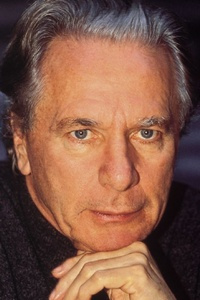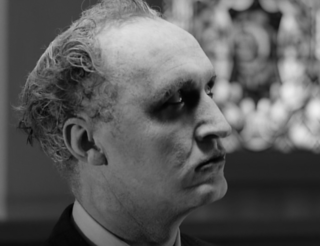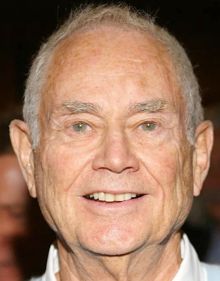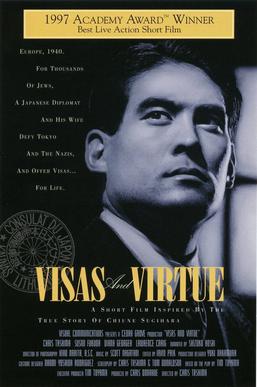Related Research Articles

The National Film Board of Canada is a Canadian public film and digital media producer and distributor. An agency of the Government of Canada, the NFB produces and distributes documentary films, animation, web documentaries, and alternative dramas. In total, the NFB has produced over 13,000 productions since its inception, which have won over 5,000 awards. The NFB reports to the Parliament of Canada through the Minister of Canadian Heritage. It has bilingual production programs and branches in English and French, including multicultural-related documentaries.

Maurice-Alexis Jarre was a French composer and conductor. Jarre is best known for his film scores, particularly for his collaborations with film director David Lean composing all of his films from 1962 to 1984. Jarre received numerous accolades including three Academy Awards, three BAFTA Awards, four Golden Globes, and a Grammy Award.

Zagreb Film is a Croatian film company principally known for its animation studio. From Zagreb, it was founded in 1953. They have produced hundreds of animated films, as well as documentaries, television commercials, educational films and several feature films.
Irving Allen was an Austro-Hungarian–born American theatrical and cinematic producer and director.

Harold Arnold "Herk" Harvey was an American film director, screenwriter, actor and film producer, perhaps best known for his 1962 horror film Carnival of Souls.

Terry Sanders is an American filmmaker having produced and/or directed more than 70 dramatic features, televisions specials, documentaries and portrait films.

Albert Lamorisse was a French filmmaker, film producer, and writer of short films which he began making in the late 1940s. He also invented the strategic board game Risk in 1957.
Shelby William Storck was an American newscaster, actor, writer, journalist, public relations specialist, and motion picture and television producer-director. He was a radio actor on The Air Adventures of Jimmie Allen and other programs, and appeared in the feature films The Delinquents and The Cool and the Crazy.
Passion Pictures is a British film production company established by Andrew Ruhemann in 1987. The company has studios in London, Melbourne, Paris, Toronto, and New York City.

Centron Corporation is a defunct industrial and educational film production company, that specialized in classroom and corporate 16mm films and VHS videocassettes. A slightly smaller company than its contemporaries such as Encyclopædia Britannica Films, Coronet Films and Learning Corporation of America, it was very successful from the late 1940s through the early 1990s, gaining added fame with the Academy Award-nominated Leo Beuerman in 1969.

The 42nd Academy Awards were presented April 7, 1970, at the Dorothy Chandler Pavilion in Los Angeles, California. For the second year in a row, there was no official host. This was the first Academy Awards ceremony to be broadcast via satellite to an international audience, though outside North America, Mexico and Brazil were the only countries to broadcast the event live.

The 51st Academy Awards ceremony, organized by the Academy of Motion Picture Arts and Sciences (AMPAS), honored films released in 1978 and took place on April 9, 1979, at the Dorothy Chandler Pavilion in Los Angeles, beginning at 7:00 p.m. PST / 10:00 p.m. EST. During the ceremony, AMPAS presented Academy Awards in 23 categories. The ceremony, televised in the United States by ABC, was produced by Jack Haley Jr. and directed by Marty Pasetta. Comedian and talk show host Johnny Carson hosted the show for the first time. Three days earlier, in a ceremony held at The Beverly Hilton in Beverly Hills, California, the Academy Awards for Technical Achievement were presented by hosts Gregory Peck and Christopher Reeve.
Maurice William Prather was an American motion picture and still photographer and film director. He was born in Miami, Florida, the son of Maurice J. Prather, a mechanic, cabinet maker, and woodworker, and Zora M. Prather, both of them born in Missouri. Young Maurice Jr. also had a younger sister, Laura Jo, some two years his junior.

Paolo Sorrentino is an Italian film director, screenwriter, and writer. He is considered one of the most prominent filmmakers of Italian cinema working today. He is known for visually striking and complex dramas and has often been compared to Federico Fellini and Michelangelo Antonioni. He has received numerous accolades including an Academy Award, BAFTA Award, two Cannes Film Festival prizes, four Venice Film Festival Awards and four European Film Awards. In Italy he was honoured with eight David di Donatello and six Nastro d'Argento awards.

Lawrence Turman was an American film producer. He was best known for serving as a producer of The Graduate

Visas and Virtue is a 1997 narrative short film directed by Chris Tashima and starring Chris Tashima, Susan Fukuda, Diana Georger and Lawrence Craig. It was inspired by the true story of Holocaust rescuer Chiune "Sempo" Sugihara, who is known as "The Japanese Schindler". Sugihara issued over 2,000 transit visas to Polish and Lithuanian Jews from his consulate in Kaunas, Lithuania, in August 1940, in defiance of his own government (Japan), thereby allowing an estimated 6,000 individuals to escape the impending Holocaust.
Rembrandt: A Self-Portrait is a 1954 American short documentary film about the artist Rembrandt produced by Morrie Roizman, a former editor for The March of Time. This film shows a series of Rembrandt's artwork, including painting and drawings spanning his entire life and being shown as related of events throughout his life are narrated.

Mitchell W. Block was an American filmmaker, primarily a producer of documentary films.

Our Curse is a 2013 Polish documentary film by Tomasz Śliwiński documenting the first six months in their life of his son Leo, who suffers from the rare genetic disorder called Ondine's curse. When Leo was born, a friend of Śliwiński's had suggested he document his experiences as a form of therapy. Śliwiński was in film school at the time; his wife Magda Hueckel is a professional photographer. Our Curse was nominated for the Academy Award for Best Documentary at the 87th Academy Awards, along with another Polish film in the same category, Joanna. The film was produced by Warszawska Szkoła Filmowa.
Margaret (Trudy) Carlile Travis (1921-2011) was an American director and scriptwriter of numerous short educational, documentary, and industrial and other sponsored films. She wrote the script for the film Leo Beuerman, which was nominated for an Academy Award for Best Documentary short in 1970.
References
- ↑ Fred Astaire Cuts Loose: 1970 Oscars
- ↑ "The 42nd Academy Awards (1970) Nominees and Winners". oscars.org. Retrieved January 11, 2011.
- ↑ Centron Corp. film producer Russel Mosser dies - Lawrence Journal-World
- ↑ 5 Lawrence legends from 'Tan Man' to 'White Owl': Names that stand the test of time|Arts & Culture|kasan.com
- ↑ Geoff Alexander, Academic Films..., p. 75